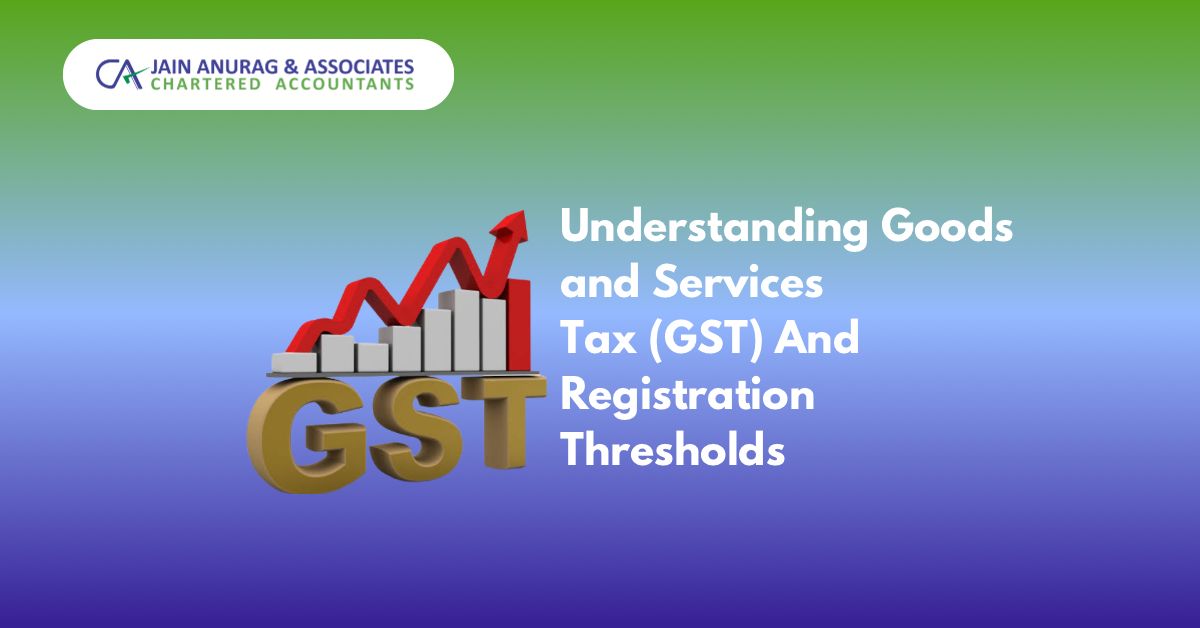Jan 16, 2025, Posted by Admin
Understanding Goods and Services Tax (GST) And Registration Thresholds

If you've ever made a purchase in India, you’ve likely come across the term GST. But what does it actually mean? Let’s simplify and understand it and break it down to help you understand the key concepts and how it applies to businesses and consumers alike.
What are Goods and Services Tax (GST)?
The Goods and Services Tax (GST) is an indirect tax introduced by the Indian government to simplify and unify the taxation system. It applies to the supply of goods and services at every point of sale. This destination-based tax replaces several older levies, including VAT, service tax, and excise duty.
Essentially, GST ensures that the tax is collected at every stage of the supply chain but is ultimately borne by the end consumer.
For example:
• Mr. X sells goods to Mr. Y. Mr. X charges GST on the bill, which Mr. Y pays.
• Mr. Y then sells the goods to Mr. Z. Here, Mr. Y charges GST on the bill, which Mr. Z pays.
This seamless system avoids the cascading effect of taxes, making it fair and transparent.
GST Registration: Who Needs It?
Businesses must register under GST if their annual turnover crosses a certain threshold:
• For goods: ₹40 lakhs in most states (₹20 lakhs in special category states).
• For services: ₹20 lakhs in most states (₹10 lakhs in special category states).
From April 1, 2019, the threshold for goods was increased to ₹40 lakhs for many states, though this change did not apply to the threshold for services.
Mandatory Registration Regardless of Turnover
Certain individuals and entities must register under GST regardless of their turnover. These include:
1. Interstate suppliers of goods.
2. Casual taxable persons.
3. Non-resident taxable persons.
4. Entities are required to deduct TDS/TCS.
5. Businesses under the reverse charge mechanism (where the recipient pays the tax).
6. E-commerce operators.
7. Input service distributors.
8. Agents or principals transacting on behalf of others.
Why GST Matters
GST simplifies taxation by merging multiple taxes into one. It promotes transparency, reduces tax evasion, and ensures that goods and services are taxed uniformly across the country.
Whether you're a business owner or a consumer, understanding GST empowers you to navigate India's taxation landscape effectively.
At Jain Anurag & Associates, a professional Chartered Accountants firm based in Mumbai, we provide a wide range of consultancy services for all GST-related matters. Our expertise extends to corporate clients, multinational companies (MNCs), and other businesses. You can connect with us to avail of expert advisory services tailored to your specific needs, ensuring seamless compliance and strategic guidance in navigating the complexities of GST.